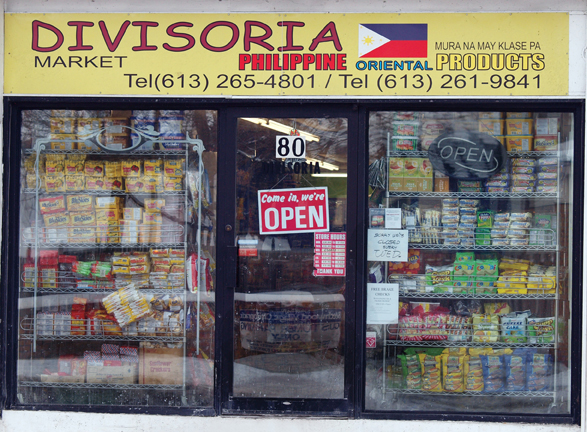Although I grew up in Manor Park, I’ve always loved New Edinburgh. It seemed urban, almost gritty in comparison. The houses — as mismatched as laundry hanging from a back-alley lane — are all scrunched together, giving the neighbourhood an authentic, unplanned feeling. It wasn’t developed in an architect’s office, but was built from the ground up, by emergent necessity. It’s an old area, one where fussy heritage types seeking to preserve each house and the eccentric accretions they’ve accumulated through ages of do-it-yourself homeownership blossom amid a scattering of itinerant renters.
The houses, like those who live inside them, are imperfect and have the tendency to shape the lives within, rather than the other way around. Unlike Rockcliffe, where you can build a glittering palace to your vanity, you can’t always get exactly what you want in New Edinburgh, but sometimes have to live without a garage. You’re still rich, of course, but you get to have an everyday complaint or two so that you can feel connected when you head down to Beechwood, the main artery that serves as the de facto line between Vanier and not Vanier.
Running through two oppositional demographics, the street gives birth to a confusing litter of shops and bars. Neither high-end nor low-end places really work along this strip, and so there is an eccentric and hopeful mix of places that really wish they were located somewhere else — somewhere better or somewhere worse, as the case may be.
On the street, there will be a bar for those with money and then another bar for those with less money, neither establishment drawing quite enough of a clientele to be the success they wanted to be. Every business here seems to be in the process of becoming rather than being, if you know what I mean.
My favourite place in Beechwood village is Divisoria, a new store that sells “Philippine and Oriental” goods. It’s optimistic, this, placing a Chinatown corner store in an area dominated by either Franco or Anglo palates. Inside, where there might one day be customers, they try to sell canned sardines and karaoke machines, and behind the cash, affixed to the wall, hangs a heart cut out from a brown cardboard box upon which is proudly taped the first loonie they received from a sale.
No, New Edinburgh, in spite of the presence of diplomats and politicians, still has a working-class shadow cast across it. And living there, with the houses so densely and imperfectly arranged, you can’t help feeling an intimacy and sympathy with the diverse array of people around you, and this — this is a nice thing to feel in any neighbourhood. — Michael Murray


